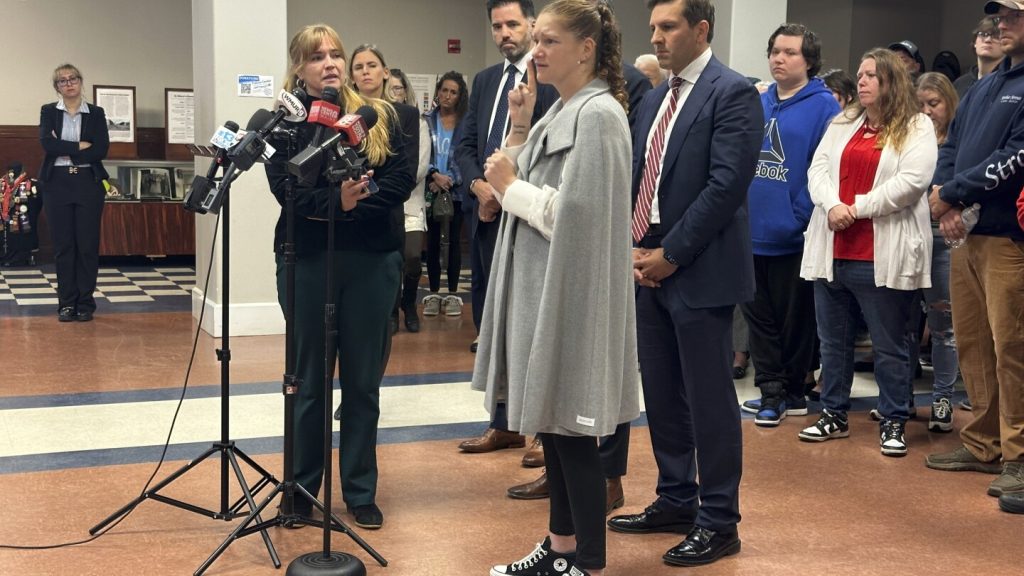Lawyers representing survivors and victims of the deadliest shooting in Maine history have initiated the process of suing the U.S. Army for allegedly failing to act to prevent the tragedy. The individual notices of claim allege that the Army was aware of the reservist’s mental health decline, which led to hospitalization and subsequent paranoid and delusional behavior, including expressing homicidal ideations and creating a “hit list.” The lawyers argue that the Army had multiple warning signs and opportunities to intervene before the reservist, Robert Card, carried out the mass shooting.
On October 25, 2023, Robert Card opened fire at a bowling alley and a cornhole league event, killing 18 people and injuring 13 others. Two days later, Card took his own life. The lawyers for the victims announced the filing of the notices of claim at a news conference in Lewiston, Maine, where many survivors and family members gathered. Elizabeth Seal, the wife of one of the victims, emphasized the importance of seeking justice for accountability and the healing process for those affected by the tragic event.
A commission appointed by Maine’s governor found that there were ample opportunities for civilian law enforcement and the Army to intervene before the shooting. The focus of the legal action is currently on the Army, rather than the private hospital that treated Card or civilian law enforcement. The claims against the Department of Defense, U.S. Army, and Army Keller Hospital allege that they failed to act reasonably, violated policies, and disregarded directives and orders, leading to the preventable tragedy.
Survivors and family members of the victims expressed their ongoing pain and trauma, highlighting the missed opportunities to prevent the shooting. Cynthia Young, who lost her husband and son in the incident, emphasized the need for accountability for the actions not taken that could have averted the loss of 18 lives. The claims mentioned that while mass shootings may have once been rare and unpredictable, they have now become an epidemic in America, requiring those in positions of authority to recognize warning signs of potential violence and take action to prevent such occurrences.
The notices of claim are a necessary step before potential litigation against the federal government. The Army will have six months to respond before potential legal action is taken. Despite the Army’s statement that they do not comment on litigation, the lawyers representing the victims and survivors are prepared to move forward with a lawsuit if the Army does not adequately address the allegations of negligence. The legal action seeks not only accountability but also a sense of justice and closure for those impacted by the tragic events in Lewiston.


